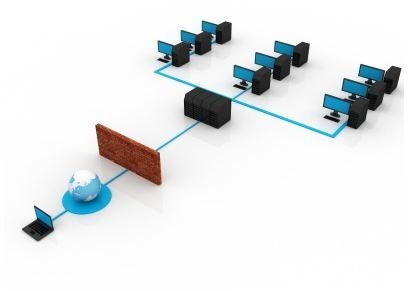Challenges and Factors for Success When Using Virtual Learning Environments
Introduction
Teachers and students alike would agree that with the progression of the internet, students are able to conveniently attend college without regard for location or time. This has created a fundamental change in the way that standardized classroom instructions are executed. However, with great change, comes challenges that implore action. With that being the case, research has suggested that there are six challenges of using virtual learning environments; and if corrected, would create factors for a successful virtual learning experience.
Six Areas of Improvement
According to an article written by Suzanne Levy, Doctor of Education, there are six areas of concern where the challenges of using virtual learning environments exist. Namely, the study suggest that distance learning instruction is more concerned with the use of information technology and computers, rather than providing a learning environment that embraces the entire educational process. The problem is also seen in the fact that virtual learning environments are a fairly new way of learning, and thus a system of optimized learning is not fully developed yet. Nonetheless some of the challenges of using virtual learning environments are:
- Lack of new and innovative vision and plans
- Inefficient staff training and support
- Misapplied curriculum focus
- Lack of student services with regard to online learning
- Inappropriate use of copyright and intellectual property laws
- Inadequate student training and support
<em>Books and Computer</em> image by <em>jscreationzs</em>
Lack of New and Innovative Vision and Plans
Planning for online instruction is a quite common occurrence amongst learning institutions, however the problem is that most plan their vision around old ineffective ways of learning.. That is, when developing their vision, institutions need to change the way that online learning is being executed. Particularly, when approaching areas involving student services, technology support, faculty training, and administrative support. Nonetheless, new and innovative planning will be crucial to the advancement of a smoother running online learning curriculum. In example, improvements can be considered in the following areas:
- Purchasing of one software system to support multiple purposes, as opposed to many software programs for multiple purposes.
- Implement a superior technical training program for all faculty instead of faculty members depending on the assistance of technical support personnel.
Inefficient Staff Training and Support
Staff training and support will be crucial in aiding in the success of an online curriculum. Meaning, online instruction is going to require more than just knowledge of the course subject only. Particularly, staff members should be required to have a greater degree of flexibility in order to play a greater role in planning, designing, facilitating, mentoring, and guiding students through the online course learning process. Therefore instructors will need to have training in the following areas:
- Knowledge on how to upload files
- Solve hardware and software issues
- Making online courses easily accessible to disabled students
- Solve screen resolution problems
- Identify downloading issues

Web Text 3D image by Francesco Marino
Misapplied Curriculum Focus
The misapplication of curriculum focus can pose many challenges to virtual learning environments. Recent research has suggested that there have been more focus placed on the technology itself, rather than focusing on the subject matter with the aid of online learning tools. On the other hand, some instructors have been reluctant to try new forms of online learning instruction for fear that it will cause confusion for students. Simply put, there should be a fair balance in the use of technology without losing the subject matter at hand. Similarly, there should also be a fair amount of knowledge and awareness of how technology will be the vehicle in which the subject matter will be accessible.
Lack of Student Services

Many colleges are more concerned with providing students with assistance regarding financial aid, career counseling, and library services, than they are with online learning services for students. According to Sally Johnstone, director of Western Cooperative for Educational Telecommunications, there are three ways in which virtual learning institutions may provide online student support. They are:
- Create web pages where students can obtain general course or school information.
- Insert pages and forums where students may communicate on the web pages.
- Provide areas on the web page where students can receive personal interaction such as online chat room counseling or online student account information/records.
World Mouse image by Salvatore Vuono
Inappropriate Use of Copyright and Intellectual Property
There is a major area of concern for the inadvertent misuse of the copyright law developed in 1976. In a school setting, the law of fair use allows works to be replicated without permission (some restrictions apply). Obviously this law failed to allow online use of copyrighted materials because online systems did not exist at that time. However, in 2001 a law was passed to allow faculty members the right to reproduce copyrighted works online, but there are some areas of study that require additional safeguards to protect the copyright. Therefore schools need to be fully aware of these laws and safeguard their program from inadvertent misuse of the law. For instance, such safeguards may require that passwords be used when students need access to online dramatic or musical works for the purpose of study.
Inadequate Student Training and Support
Simply put, students who are not acclimated to the virtual learning environments will struggle with the course, and thus suffer academically. Nonetheless students should be provided with technological support and training to ensure that online learning is not causing an undue burden on their learning capabilities. Such support systems include online counseling, tutoring, study groups.

Computer Network image by jscreationzs
Conclusion
Experts agree that there are many hurdles that need to be over-come when dealing with virtual learning environments. Whatever the challenges may be, institutions must take marked steps toward achieving such dilemmas in online learning. Especially, as technology becomes apart of our everyday life, so will the need to effectively build factors for successful virtual learning experiences.
Reference:
